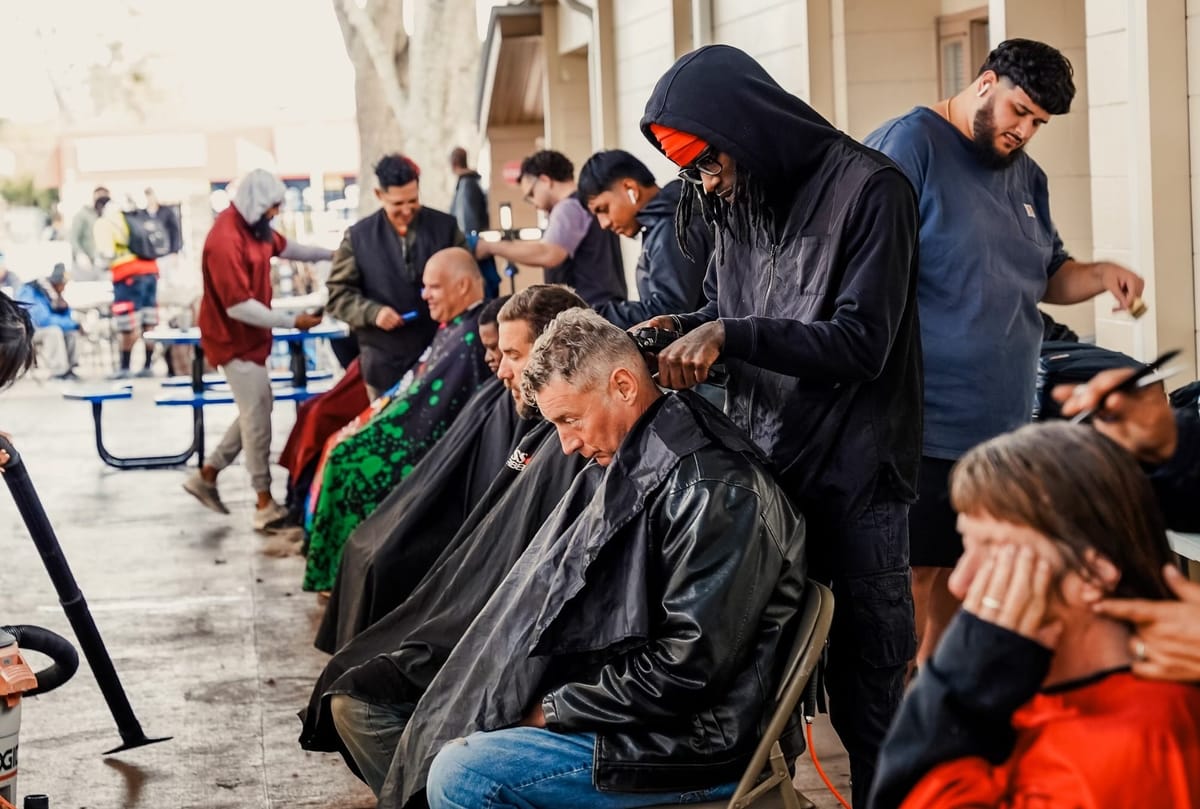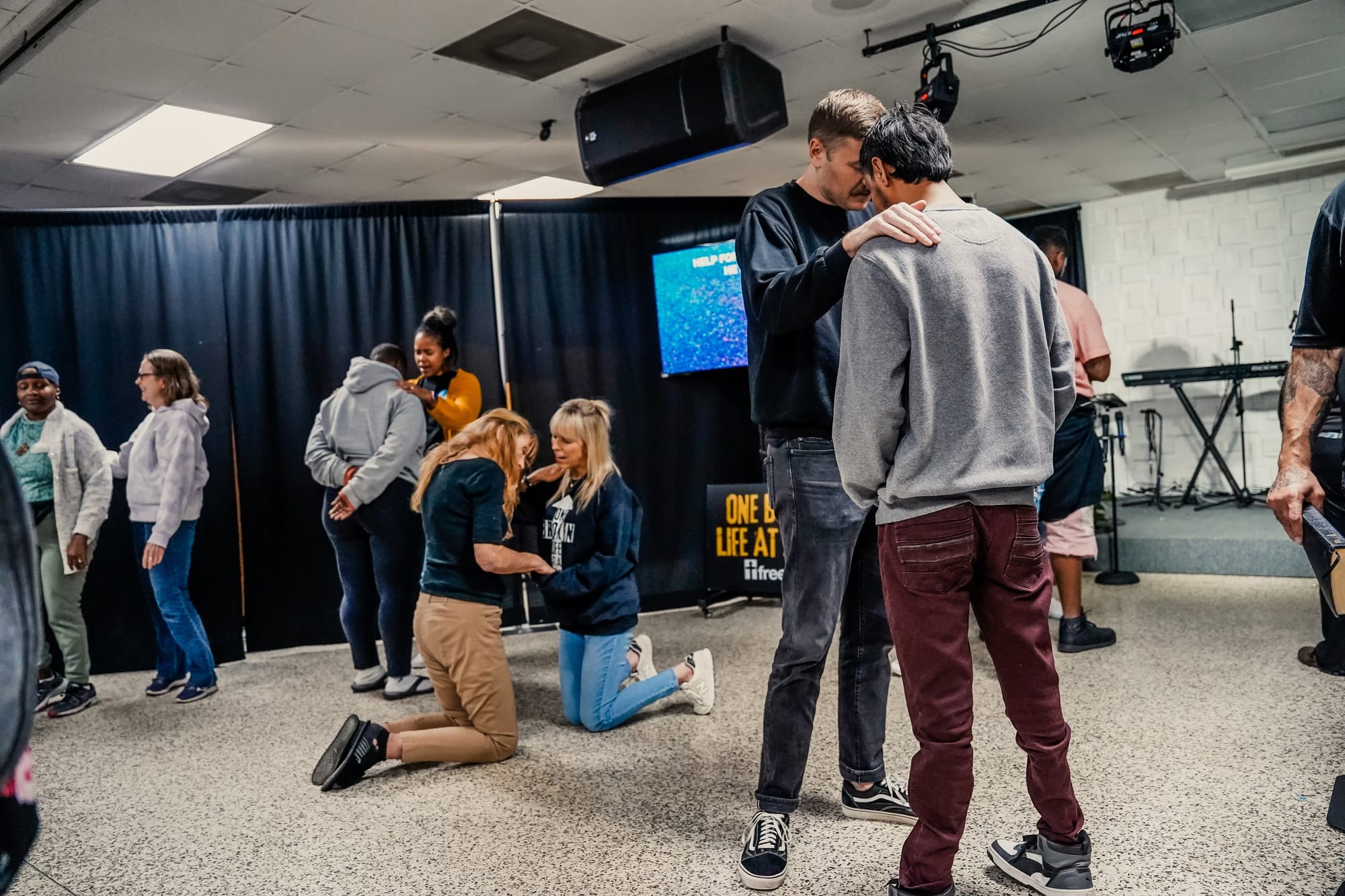4 Lessons I Learned Being a Missionary to Addicts, Criminals and the Impoverished

My name is Josh Zuniga. I am proud to be a born again son of the Most High King, husband to my beautiful wife, Alex, and father to Amar’e and a baby arriving in December. I spent 14 years in addiction, then God rescued me from my death bed for the fourth time within a 16-week period in the cardiac ICU. In 2015, I entered into the Freeway Discipleship house in Springfield, Missouri and from there, God called me to full-time ministry.
Statistically speaking, I shouldn’t be writing this article — I should be dead or in prison. BUT GOD! God had a plan for my life beyond the 14 years I spent in addiction and crime! He rescued me from my grave and called me to full-time missions work reaching out to my former people group with Freeway Ministries.
Here are four things I’ve learned in my nine years with Freeway Ministries.
Lesson 1: People are NOT projects.
When serving in recovery ministries with individuals coming from generational cycles of crime and addiction, we often have a desire to “fix” them. We might even feel like it’s our job to get them to a certain point, and then we can feel like the problem is solved.
People are NOT projects. They are people. But many of those we seek to serve have been viewed by others as a project or statistic for their entire lives. They’ve lived with this “FIX ME” label, and they can spot someone who sees them as a project from a mile away. The most important thing to remember is that they don’t need “fixing” — they need Jesus! We can’t fix or change anyone; only King Jesus has the power to do that.
So how do you share Jesus with someone who is an addict, a criminal or impoverished? Start by treating each individual with dignity. Look them in the eyes, see a person, not a project. Build a relationship by having a conversation, asking questions, and treating them exactly as you would treat a guest visiting your church for the first time on a Sunday morning. Refuse to see them as the label that society has assigned them (addict, criminal, x-con, lost cause, too far gone). Instead, look at them as God’s marvelous creation and as another person in desperate need of the grace and mercy of God.

Lesson 2: Rock bottom is NOT a place, but a state of mind.
For godly grief produces a repentance that leads to salvation without regret, whereas worldly grief produces death. -2 Corinthians 7:10 (ESV)
This is a hard one, especially for those unfamiliar with addiction. We often see a loved one, a friend, or work colleague go through something awful due to their lifestyle of addiction. It may be a near death car wreck that they shouldn’t have survived, an overdose that should have taken their life, or the loss of the custody of their children.
We see what they go through and think, “This has got to be it. This has to be what makes them say ‘I’m done.’ Surely this is rock bottom for them.” Yet, within days or even hours later, they go right back to their old lifestyle.
We must understand that “rock bottom” is not a place; it’s a state of mind. John Stroup puts it this way in his book Stop Loving Your Kids to Death:
Rock bottom is a state of surrender and submission. The purpose of rock bottom is repentance as a result of humility. The purpose of rock bottom is to bring about a godly sorrow that brings repentance and true change in one’s life.
Without earnest, godly repentance from sin, there is only worldly grief that does not lead to true change.
Lesson 3: You can’t take people’s failures personally.
When people take off on you, when they go back to addiction and the streets, when they leave without saying goodbye—after the hours, days and months you have poured into them, counseling them, loving on them, inviting them into your home—you must remember NOT take it personally.
At that moment it’s easy to tell yourself, “I’m never going to let someone get that close again,” because you feel used and hurt. You’ll tell yourself to keep your guard up and keep them at distance next time. You must remember this: GOD did not call you to keep people at a distance. He called you to love them and show them the same love, and grace, and patience that He showed YOU.
When I was a house leader in the Freeway Men’s Discipleship house, a man I was very close with and had worked with for over 6 months left in the middle of the night without a word. The next morning, John Stroup told me a very simple but powerful truth that has stuck with me:
You can’t take people’s failures personally. Because if you take their failures personally, that means you’re taking their wins personally. And we know that God is the only one who gets the credit for their wins!”
Lesson 4: Don’t make someone else’s emergency your emergency.
He must manage his own household well, with all dignity keeping his children submissive, for if someone does not know how to manage his own household, how will he care for God's church? -1 Timothy 3:4-5 (ESV)
Often in ministry, pastors and leaders of any capacity are the first call for people going through struggles, looking for answers and direction, or dealing with a family crisis or situation they don’t know how to navigate. It’s such a privilege that God has entrusted us as shepherds and leaders to guide people, to point them towards Christ and give them sound biblical counseling through difficult times.
However, we must guard against this ministry becoming more important or taking priority over the first ministry that God has given us — our families.
Ministering as Pastor and Director of Freeway Orlando holds even more unique challenges due to the people group we work with. From early morning to the middle of the night, my phone rings and emails pour in from inmates in prisons and jails. Lawyers and social workers want more information or updates. Moms, dads, and spouses call in panic and tears as their loved one just overdosed, is getting arrested, or has a court case next week, begging us to help in any way we can.
So when my phone rings or an email comes in during the time that I am spending with my family, it’s hard for me not to pick up or send back a quick reply. I used to think, “I’m in ministry. There are no days off and no set office hours. I need to always be available.” I still struggle with this, but by the grace of God, I have made great strides in the right direction!
Thanks to Godly men and leaders who hold me accountable and pour into me, I know (and I’m regularly reminded!) that my family is my first priority in ministry. I don’t want my kids earliest memory to be the back of my phone because I’m always on it. It is so easy to put ministry on the pedestal while sacrificing your family on the altar. But that’s not what God calls us to do!
Conclusion
These are but a few of the many things that I have learned during my time in ministry and leadership. I have so much more to learn and many more areas to grow in, but I pray that these 4 things might be helpful to whomever is reading this.